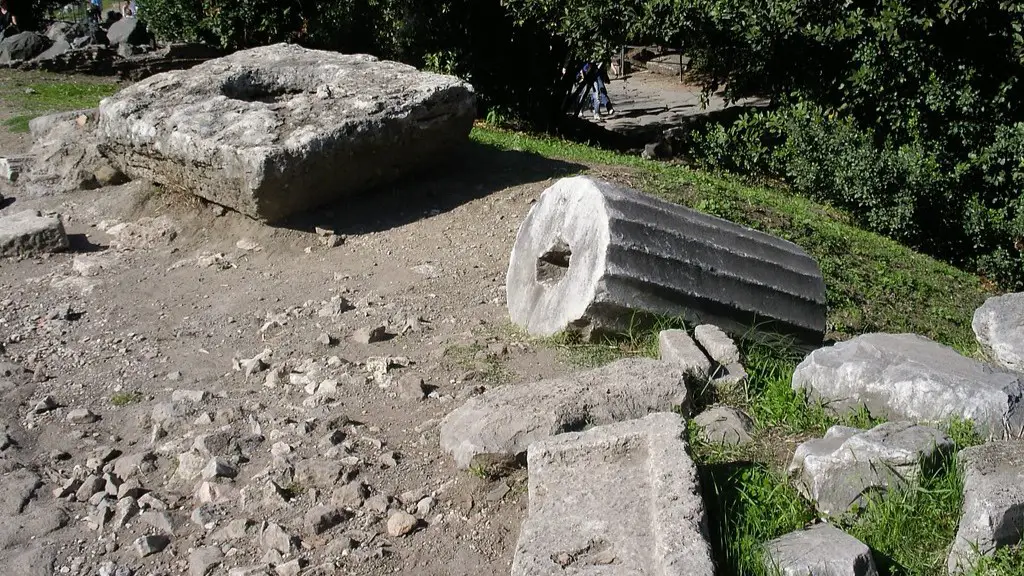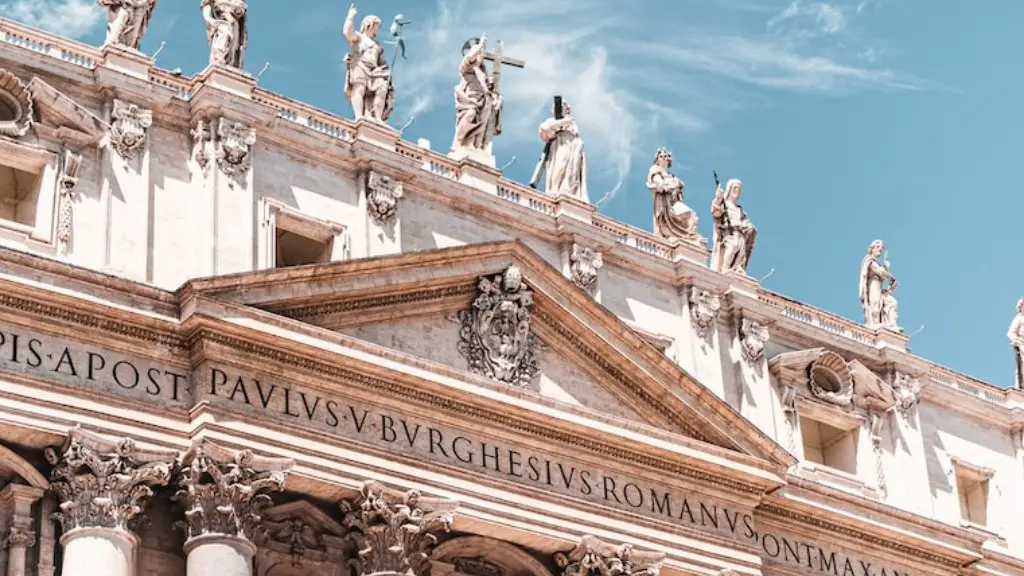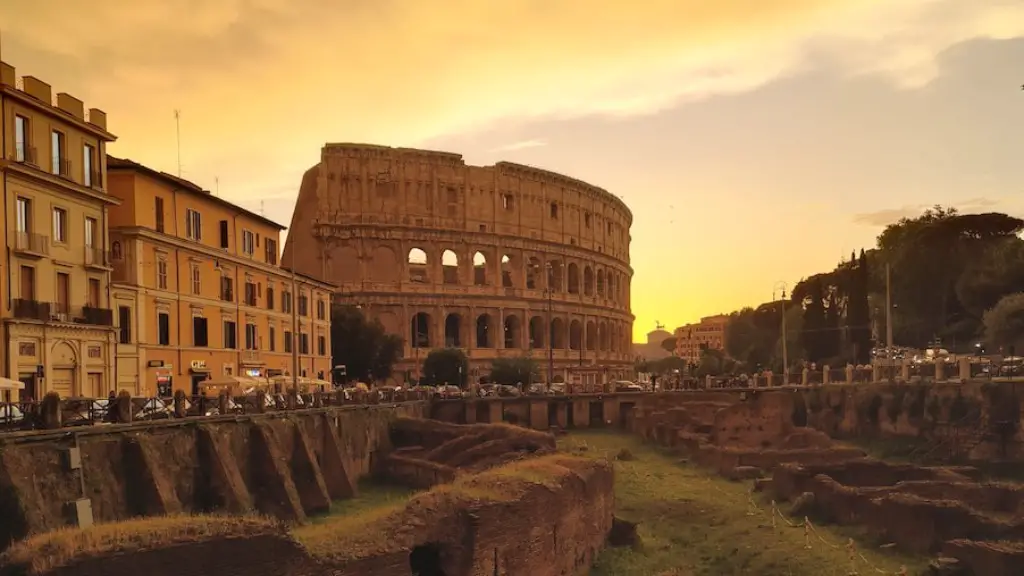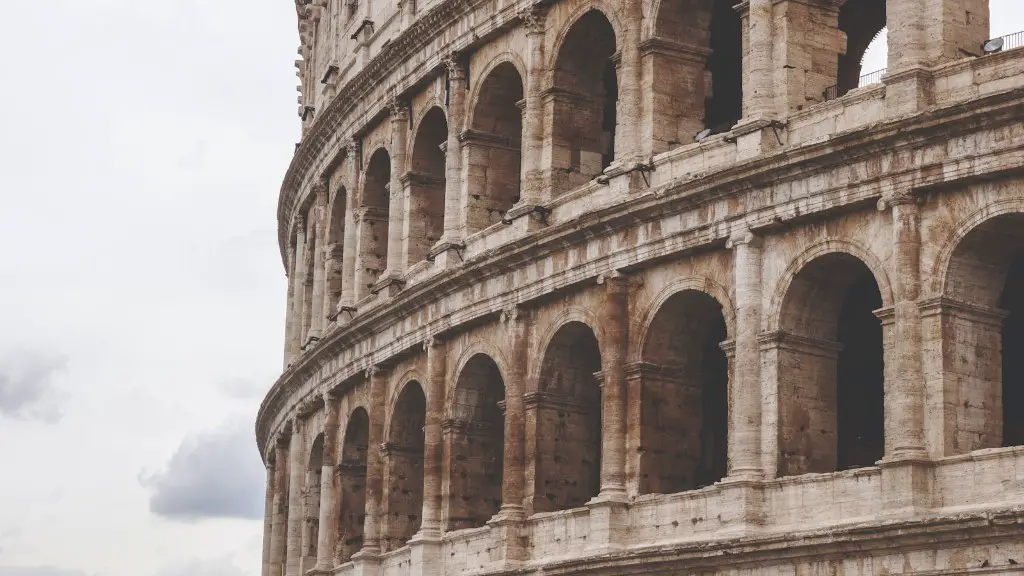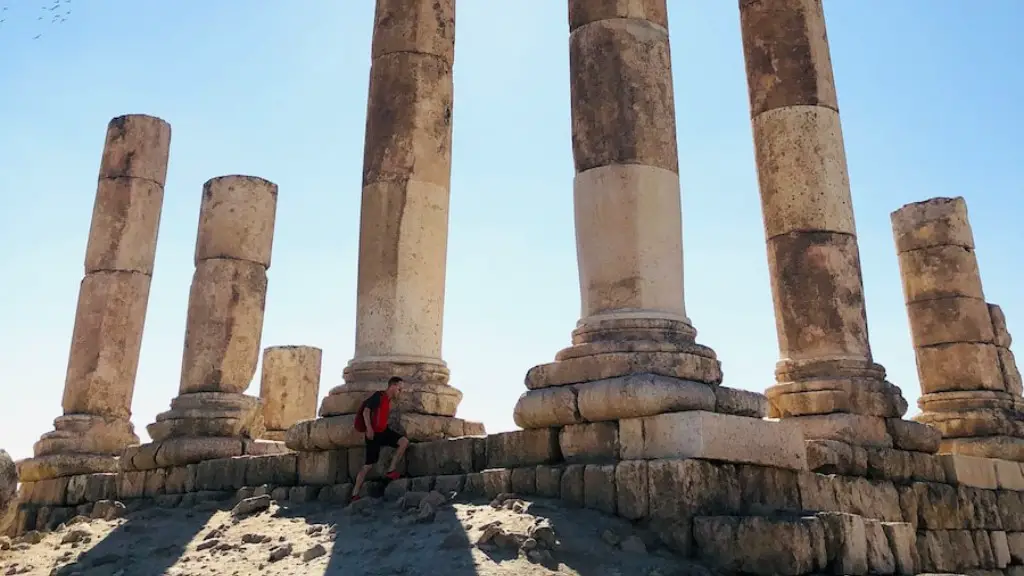In Ancient Rome, patronage was a cornerstone of the social and political system. In its simplest form, patronage was the relationship between two individuals where one, the patron, had some form of influence, power or wealth and the other, the client, had some form of need or necessity. The patron could influence certain decisions of the government in favor of their clients and provide them with access to resources and networks. This was a mutually beneficial arrangement that allowed the client to gain access to resources and support and the patron to create an influential network of likeminded individuals and accumulate favor in a system where prestige and wealth decision making power were important.
Patronage was deeply ingrained in Roman society, beginning as early as the seventh century BC, when the wealthier classes would build relationships with poorer citizens in order to gain political power. Throughout the Roman Republic, many of the nobility used patronage as a way to expand and solidify their power base, creating networks of powerful and influential citizens that could be called upon in times of need. During the Imperial period, patronage became more prevalent, with emperors using patronage to secure their rule and increase their influence.
Patronage was a form of social gain- predominantly between wealthy patricians and lower classes and within the state, political kings and military leaders had an abundant supply of clients at their disposal. It could also be used to create alliances with foreign powers. The relationship would benefit both parties and provide a distinct advantage to the patron, helping to increase their social status, reputation and power. The patronage relationship was largely based on mutual dependence and trust and was a significant factor in the control of resources and decision making.
Patronage was also a form of protection for the client. They could gain access to resources, protection and social status as a result of their relationship with the patron. It was a way of making sure that the client’s interests were always taken into consideration and that they were not subjected to the tyrannical whims of a powerful individual. It was also a way of ensuring the patron had devoted and loyal individuals supporting them.
The patronage system was an important part of Roman society and one which enabled an unequal distribution of societal and political resources. At the same time, it provided security, protection and influence to those in need. Clients often provided political or military service and other forms of devotion to the patron in return for this security. Patronage was a network of power and influence that underlay Roman society and enabled the creation of a strong, centralized government and state.
Economic Effects
Patronage had a profound effect on the Roman economy. It allowed for an unequal distribution of wealth and resources, with wealthier patrons often providing support and resources to their clients in exchange for political and military support. The economic inequality was one of the central grievances of the Roman Republic, and the patronage system was an important factor in the centralization of wealth and power in the hands of a few families and individuals.
The patronage system also enabled the elite to gain a significant degree of control over the economy, allowing them to protect their assets and use their influence to acquire resources and goods. This enabled them to reinforce their power and wealth, as well as their social status and influence.
The centralization of resources, power and influence enabled by patronage had a profound effect on the Roman economy and the structure of Roman society. Wealthy patrons often used their influence to amass greater wealth and resources, creating an unequal distribution of wealth that benefitted the powerful and left the rest of the population underprivileged and underrepresented.
Political Effects
The patronage system greatly influenced politics in Ancient Rome. Gateways to power and decision making were often barred for those who were not part of the patronage network, and even those who were tended to be limited in their ability to advance in the system. This created an entrenchment of power and influence among the members of the elite and the patronage system was a major factor in the centralization of power and resources in the hands of a few individuals.
The political loyalty of clients was also important, as patrons were often able to use their influence to shape and direct political decisions and outcomes in their favor. The centralization of power in the hands of a few people provided these individuals with a great degree of influence, which was often used to increase their own political and economic power.
Patronage was an important factor in the creation of a centralized Roman government. By ensuring the loyalty of those who could provide them with resources and power, the Patricians and Senate had a stranglehold on government and decision making that enabled them to remain in power and maintain their high social status and wealth.
Social Effects
While it had its benefits, patronage was also a form of social control and reinforcement of an unequal distribution of resources and power. Those at the top of the patronage system were able to remain in power by ensuring the loyalty of their clients and by preventing the influx of new individuals and ideas into the system. This only served to maintain their position and enabled them to further their own power and wealth at the expense of those lower down in the system.
Patronage also enabled the wealthy and elite to use their influence to gain access to resources and services that would not have been available to them if they were not part of the patronage system. This was a form of privilege and advantage that reinforced the existing power structure, furthering the interests of the patron and the client.
In addition, the creation of a patronage network created an atmosphere of competition, wherein patrons would use their influence to gain favor with clients, often leading to unhealthy rivalries and personal vendettas. This could lead to further inequality and disputes between those higher up the patronage ladder and those lower down.
By reinforcing the existing power structure and creating an unequal distribution of resources and power, patronage was an important factor in the creation and maintenance of a highly stratified Roman society. It enabled the power elite to remain in power and accumulate wealth and influence while also placing limitations on the advancement of those lower down in the system.
Religious Effects
The patronage system also had a profound effect on the religious life of the Roman Empire. Patronage was often used as a way of gaining favor with religious leaders, providing access to resources and networks in exchange for political and spiritual support. This enabled influential members of the patronage system to gain influence and power and reinforced the status of the religious cults in Roman society.
The patron-client relationship also had an effect on the religious life of Roman citizens. Clients were expected to show loyalty to their patrons and in exchange for loyalty and support, the patron would provide them with access to religious festivals and ceremonies. This reinforced the importance of empire-wide religious observances, as well as the link between spiritual devotion and loyalty to one’s patron.
The patronage system was an important factor in the religious life of the Roman Empire. It enabled those higher up the patronage ladder to gain access to resources and networks in exchange for political and spiritual devotion and enabled them to reinforce their power and influence. At the same time, it provided a level of security and protection to those lower in the system, allowing them to engage in religious observances and ceremonies without fear of repercussions.
Legacy
The patronage system was a crucial part of Roman society and had a profound influence on the structure of Roman politics, economics, religion and society. It enabled those higher up the patronage ladder to accumulate power and wealth, while limiting the advancement of those lower down the ladder. It was a system of inequality and one which enabled the powerful to remain in power and amass greater resources and influence.
The legacy of patronage has left a lasting impact on modern Western society. While the patronage system has largely been relegated to the past, it is still evident in the unequal distribution of resources and power. It has also played a role in the creation of a system of privilege and advantage, wherein certain individuals are able to gain access to resources and networks based on their connections and influence.
The patronage system of Ancient Rome has had a deep and lasting influence on society and while it has largely been replaced by new systems of power and influence, its legacy can still be felt in modern times.
